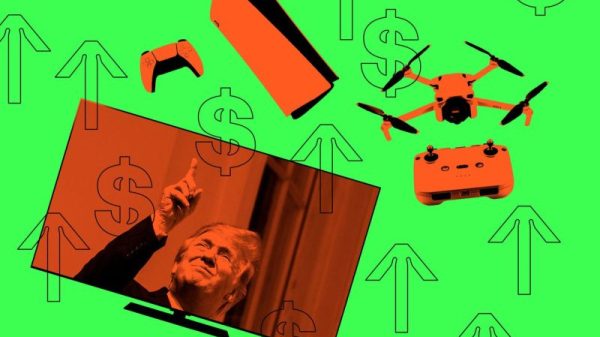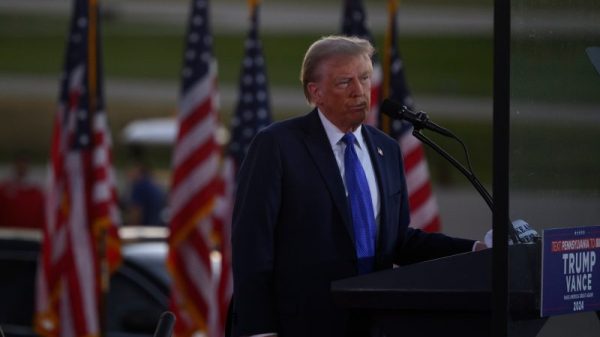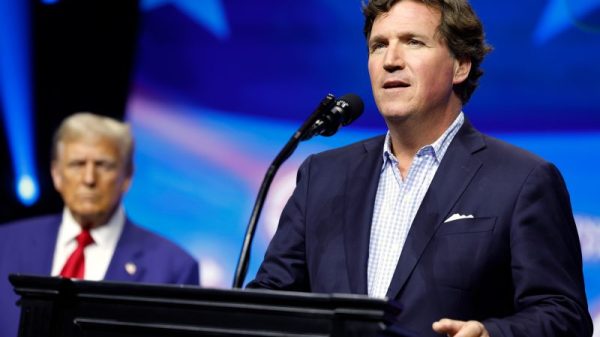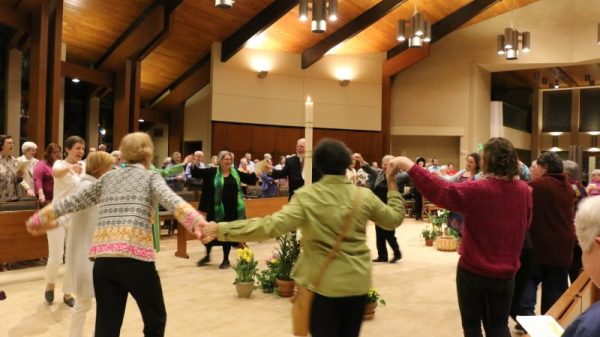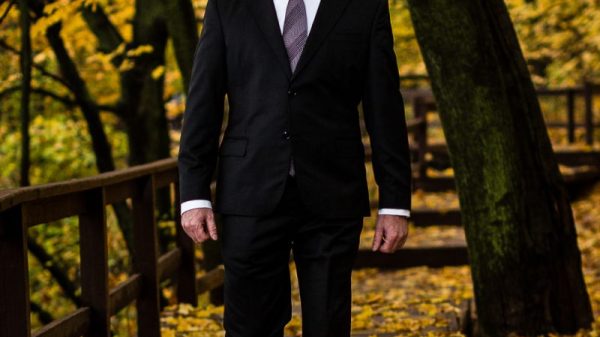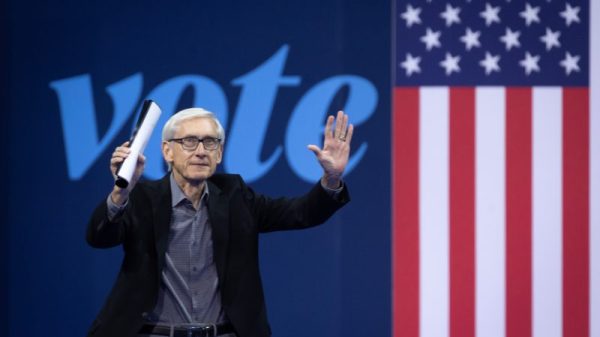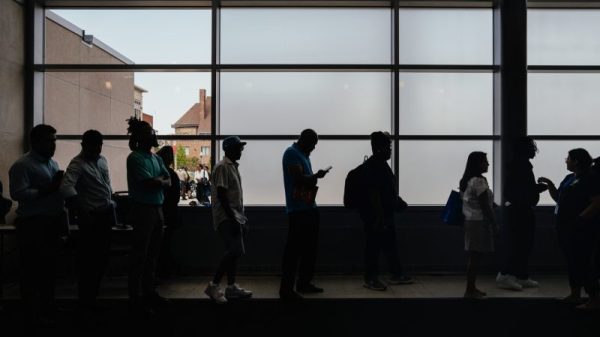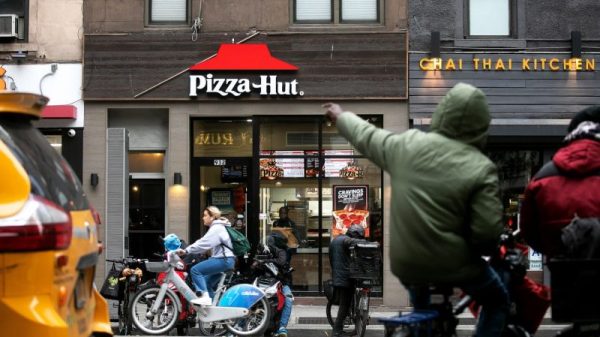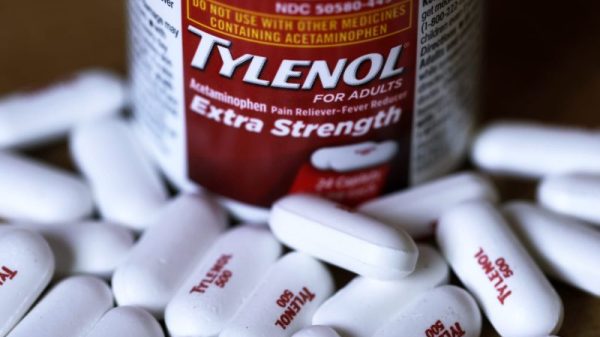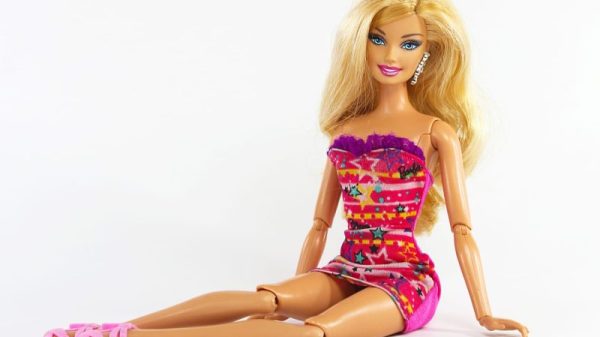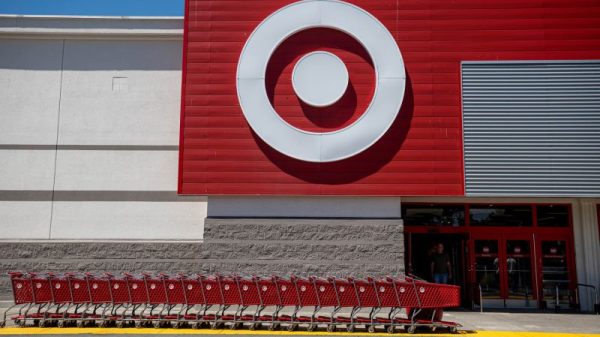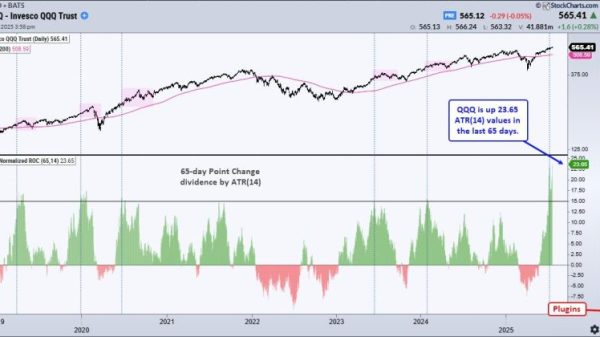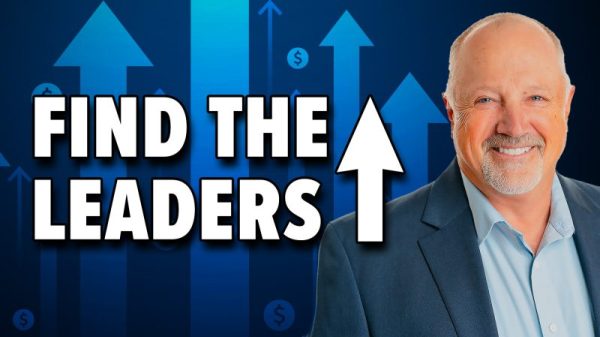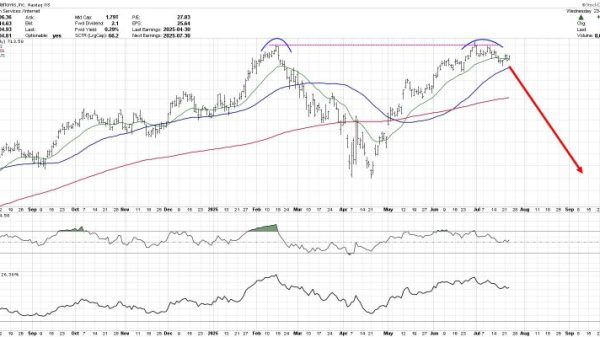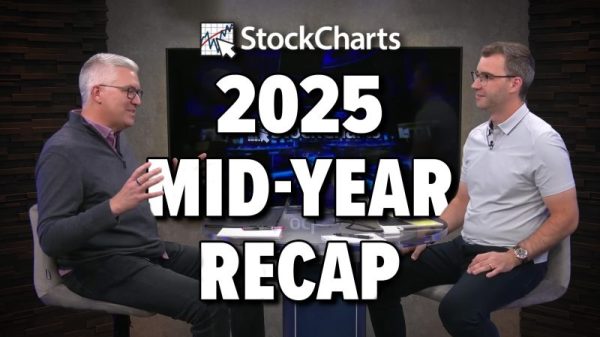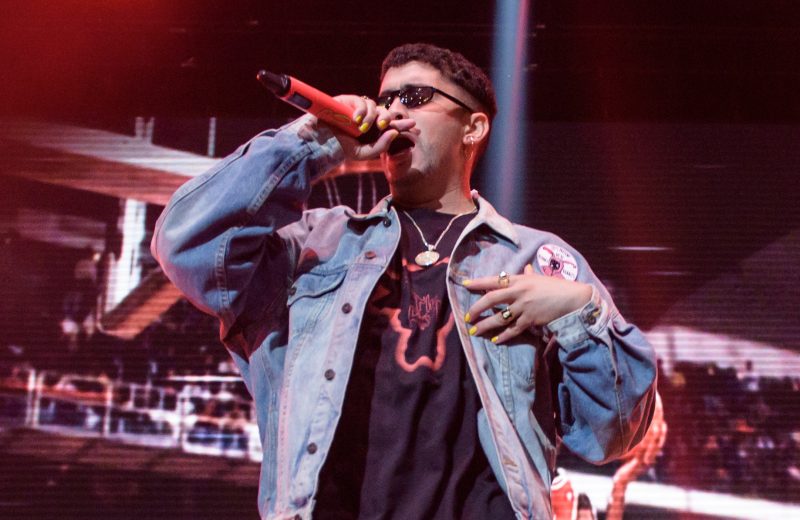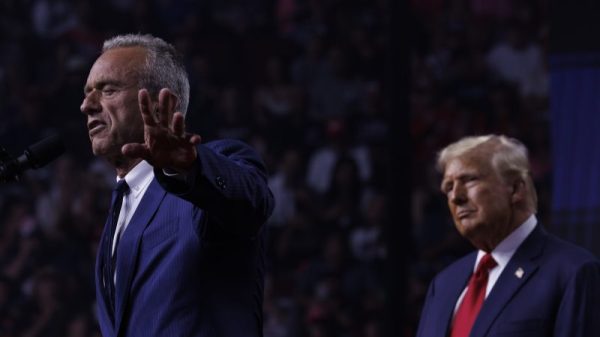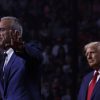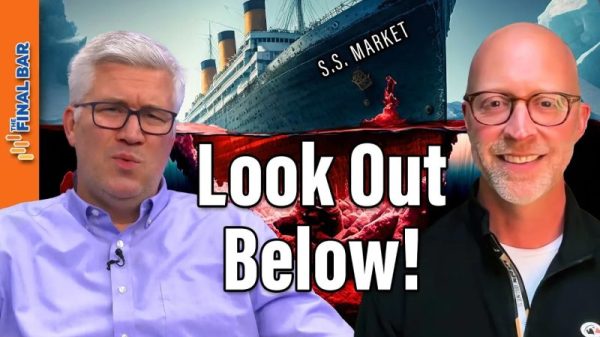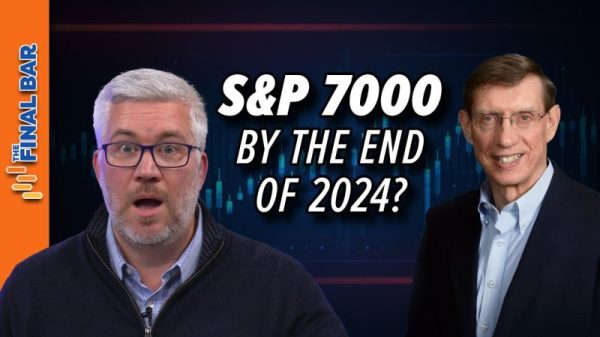Mayra Vélez Serrano drove to work Wednesday along Puerto Rico’s Highway 18, one of the island’s busiest freeways. It would’ve been a normal drive — had it not been for a new, giant billboard that left her “absolutely floored,” said the political science professor at University of Puerto Rico at Río Piedras.
There, in Spanish on a black background, was a stark message: “Anyone who votes for the New Progressive Party (PNP), does not love Puerto Rico,” a bold attack on the island’s dominant party since 2017. To Vélez Serrano it encapsulated Puerto Ricans’ long-held frustrations over the island’s two-party political system — one that is threatening to crumble during the Nov. 5 gubernatorial elections.
The unsigned ads spotted hanging over some of Puerto Rico’s most-transited routes soon fueled a frenzy of headlines and gossip — which only crescendoed after Bad Bunny, one of the biggest superstars in the world, announced he had bought them to show his love for his homeland. His ads — some of which said that voting for PNP was voting for corruption — were the latest twist in a long-brewing spat that has once again placed the musician front and center of the island’s politics.
“We’re so used to seeing political ads made by the parties or super PACS, but nothing like this,” Vélez Serrano told The Washington Post. “This was the visual epitome of how there’s an important segment of the population that does not trust the traditional parties, is fed up by the ongoing crisis and is looking for a change.”
The PNP did not comment when reached by The Post.
#BadBunny is buying billboards saying that a vote for the Statehood party (PNP) in #PuertoRico is a vote for corruption.
.@cpipr just released this investigation https://t.co/IUtFGexA5u pic.twitter.com/QOKneO3l2Y
— Erica G. for Class President (@EG10029) September 24, 2024
Puerto Rican politics don’t align neatly with the Democrats vs. Republicans dichotomy of Washington. Instead, the island’s two main parties, the PNP and the Popular Democratic Party (PPD), are divided over Puerto Rico’s status — the former pushing for statehood and the latter for the island to remain a self-governing commonwealth of the United States. A smaller third party, the Puerto Rican Independence Party (PIP), advocates for independence.
That system was “stable for half a century, with the two biggest parties getting approximately 95 percent of the vote in each election,” said Amílcar Antonio Barreto, a professor of cultures, societies and global studies at Northeastern University. But the past decades — marked by economic stagnation, corruption scandals, a fiscal crisis and a troubled response to a devastating hurricane — have “created a melee and left the political scene in flux,” Barreto said.
In recent years, the question of the island’s status has taken a back-seat in the minds of voters, who are more concerned with the issues related to the cost of living, the state of the economy and the quality of life, he added. That’s why new, smaller parties — such as Movimiento Victoria Ciudadana, which focuses on social justice and battling corruption and the ultraconservative Proyecto Dignidad — have been able to emerge and gain ground.
For the first time in more than seven decades, polls have the “Alianza,” a coalition made up by the PIP and Movimiento Victoria Ciudadana, garnering about 20 percent of the vote in the upcoming gubernatorial race. Its candidate, Juan Dalmau is trailing behind PNP’s Jenniffer González-Colón, who also serves as the resident commissioner of Puerto Rico, a nonvoting member of the U.S. House of Representatives. The PPD’s gubernatorial candidate is polling third.
“There’s an older cohort of voters in Puerto Rico that are still loyal to the traditional parties — there’s a lot of identity politics at play,” Barreto said. “But this is not how young people feel. There is also a lot of disenfranchised, disaffected voters lashing out, and the way they’re doing so is to vote for the nontraditional parties.”
That cohort of younger, frustrated voters is what Vélez Serrano calls “the crisis generation” — those born in the 1990s and 2000s, who Vélez Serrano says “have never seen economic growth and have only experienced Puerto Rico falling into decay.”
“They’re the ones who’ve seen dwindling opportunities, forcing them to migrate to the mainland,” she said. “And Bad Bunny is part of this crisis generation.”
The 30-year-old Bad Bunny — whom Barreto and Vélez Serrano described as a “much more vocal Taylor Swift” — has for years used his platform as one of the most popular artists in the world to raise awareness about Puerto Rico’s plight. In 2019, he was a constant presence in the protests that led to the ouster of Gov. Ricardo Rosselló (PNP). In 2022, the music video for his song “El Apagón” — named after the rolling power outages that have plagued the island since Hurricane Maria in 2017 — doubled as an 23-minute documentary about Puerto Rico’s power grid failures, colonialism and gentrification.
During an interview with Puerto Rican YouTuber El Tony earlier this month, Bad Bunny spoke out against voter apathy in Puerto Rico and called on people to register.
“I really care about Puerto Rico,” the singer said in Spanish as he swallowed back tears. “It’s good to go out on the streets to protest, to let ourselves be heard as people, but I think that the biggest act of protest is to vote against the people who have led us to this mess on Nov. 5.”
A day after the interview aired, hundreds of college students went to a voter registration event at the University of Puerto Rico at Río Piedras. In a bleak reminder of the ongoing crisis, the entire school lost power. The next day, though, about 300 students returned and registered to vote, local outlet El Nuevo Día reported.
It’s still unclear how much of an effect Bad Bunny’s actions will have in the elections. Last month, Somos Más, an engagement nonprofit, released data revealing that 75 percent of all newly eligible voters under age 21 had not yet registered to vote. The deadline to do so, Sept. 21, has already passed, although there is an effort to extend that window.
The ACLU on Tuesday filed an emergency lawsuit to push the voter registration deadline to Oct. 6 — the latest time frame allowed under Puerto Rican law — given the power outages, the flawed rollout of an online registration system and staffing shortages that have plagued the registration process, the group said.
The problems with voter registration prompted five members of the U.S. House to send a letter Wednesday to the Department of Justice, calling on the agency to send federal poll monitors to oversee the PNP-controlled Commission on Elections’ compliance with voting rights laws.
Though the ads themselves might not be enough to mobilize voters, Vélez Serrano said they’re still poignant in how they capture Puerto Ricans’ frustrations — especially those of younger people, who “find themselves stuck between staying in the country they love or looking for better opportunities elsewhere.”
Álvaro Carrillo, 24, is among the thousands of Puerto Ricans that have left the island in recent years, settling in New York City after graduating from college. His long-term goal is to return to “the home I desperately love” once he gains the experience and skills “that will help me contribute to Puerto Rico’s future.”
In Bad Bunny’s billboards, Carrillo sees “a wake-up call not only for the PNP, but for the United States in general, about the legitimate frustrations people have — frustrations and concerns that must be taken seriously or our diaspora will keep on growing.”
Party members of the PNP, however, appear to have taken the beef with Bad Bunny “quite personally,” Vélez Serrano said.
Earlier this month at the party’s convention, González-Colón walked out to Daddy Yankee’s song “Dura (Remix).” And in what appears to be a clear dig at Bad Bunny, she pointed at her ears and started to dance when the song’s lyrics of “me como al conejo” — I eat the bunny — resounded inside Puerto Rico’s biggest indoor arena.
@edgar_robles_14 Evidencia que @JGO_FanPage_TikTok ♬ sonido original – Edgar Robles
More surprising still, Vélez Serrano said, was the PNP’s reaction to Bad Bunny’s billboards. The party filed a complaint with the Office of the Electoral Comptroller pointing that the ads were published without the required tag identifying who paid for them. (The ads would later appear with a line saying they were paid by Benito Antonio Martínez Ocasio, Bad Bunny’s legal name.)
Shortly after, a member of the party came up with what’s been described online as a “counterattack”: An ad urging people to vote en mass on Nov. 5 “PARA QUE BENITO _AME.” The missing letter “m” would make the message read “so Benito can suck it.”
“I mean, this is a legislator paying for an ad that alludes to what we refer to in a derogatory way as a humiliating act to attack a private citizen,” Vélez Serrano said. “It’s shocking.”
Contraataque a Benito. @trschatz51 publica billboards. pic.twitter.com/oBYRRymZs6
— Rafael Lenín López (@LeninPR) September 25, 2024
In San Juan, 25-year-old Eduardo Alvarado was not exactly shocked by the response from a party he said “is just not attuned to what we Puerto Ricans want and need.”
“I think this shows that they’re scared and that they’ve realized that we’re incredibly frustrated by what’s been going on — the corruption, the lack of opportunities, the economic crisis,” Alvarado said. “You’d think that they’d be more focused on showing their government plan and trying to solve people’s problems, but instead they’re beefing with a celebrity.”
Even before the ads popped up, Alvarado was already planning on not voting for PNP — but the party’s response, he said, cemented his choice.
“I don’t want to vote for a party that doesn’t seem to care about our everyday problems and that has to reduce itself to putting up a sign telling Bad Bunny to suck it.”
Adriana Usero contributed to this report.


